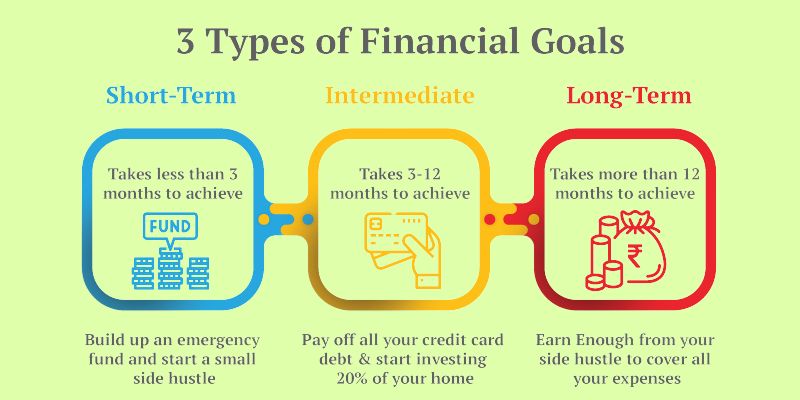How to Choose the Right Mortgage for Your Financial Goals,Choosing the right mortgage is one of the most important financial decisions you’ll make as a homebuyer. With various options available, each with its own advantages and challenges, understanding how to select the mortgage that aligns with your financial goals is crucial. Whether you’re buying your first home, refinancing an existing mortgage, or seeking the best rates, selecting the right mortgage can save you money in the long run. In this guide, we’ll walk you through the key factors to consider when choosing a mortgage, ensuring you make an informed decision that suits your financial objectives.
1. Understand Your Financial Situation
Before selecting a mortgage, it’s essential to assess your financial situation. Consider factors such as your income, savings, credit score, and debt-to-income ratio. This will give you a clearer picture of how much you can afford to borrow and help you determine the type of mortgage that will work best for you.
2. Types of Mortgages
There are several types of mortgages, including conventional loans, FHA loans, VA loans, and USDA loans. Each type has its own eligibility requirements and benefits. For example, FHA loans are ideal for first-time homebuyers with lower credit scores, while VA loans offer special terms for military veterans. Knowing which loan type is most suitable for you will help narrow your options.
3. Consider Your Down Payment
Your down payment will influence the mortgage you choose. A larger down payment can reduce your monthly payments and may eliminate the need for private mortgage insurance (PMI). In contrast, smaller down payments can make it harder to qualify for certain loans or result in higher interest rates. Generally, a down payment of at least 20% will allow you to avoid PMI.
4. Fixed vs. Adjustable-Rate Mortgages
Fixed-rate mortgages have an interest rate that remains the same throughout the loan term, providing stability and predictability in payments. Adjustable-rate mortgages (ARMs) have an interest rate that changes over time, which can result in lower initial payments but potentially higher payments later on. Consider your long-term plans and risk tolerance when choosing between these options.
5. Loan Term Length: 15-Year vs. 30-Year
The length of your mortgage will affect both your monthly payments and the total interest you’ll pay over the life of the loan. A 15-year mortgage typically has higher monthly payments but offers the advantage of paying off the loan faster and saving on interest. A 30-year mortgage has lower monthly payments but will result in paying more interest over time. Determine which loan term fits your budget and long-term financial goals.
6. Interest Rates and How to Secure the Best One
Interest rates can vary significantly depending on the type of mortgage, your credit score, and current market conditions. Shop around and compare rates from different lenders. Locking in a favorable interest rate can make a big difference in the total cost of your mortgage. Additionally, paying points (upfront fees) can sometimes help secure a lower rate.
7. Credit Score and Its Impact on Your Mortgage
Your credit score plays a major role in the mortgage options available to you. A higher credit score generally qualifies you for lower interest rates, while a lower score may limit your options or result in higher rates. Before applying for a mortgage, check your credit score and take steps to improve it if necessary, such as paying down debt or correcting any errors on your credit report.
8. Closing Costs and Fees
In addition to the down payment, you’ll need to factor in closing costs, which typically range from 2% to 5% of the loan amount. These costs can include application fees, appraisal fees, title insurance, and inspection costs. Be sure to ask lenders for a detailed breakdown of all fees associated with your mortgage to avoid any surprises at closing.
9. Explore Government-Backed Loan Programs
If you’re a first-time homebuyer, a veteran, or purchasing in a rural area, government-backed loans might offer favorable terms. FHA loans, VA loans, and USDA loans all have unique benefits, such as lower down payment requirements or no down payment at all. Research these programs to see if you qualify and if they align with your financial goals.
10. Seek Professional Advice
Choosing a mortgage can be overwhelming, and it’s a good idea to seek professional advice. A mortgage broker or financial advisor can help you navigate the process, compare loan options, and recommend the best mortgage for your specific financial situation.
Conclusion
Choosing the right mortgage is an essential part of achieving your homeownership goals. By understanding your financial situation, exploring different mortgage types, and considering the various factors involved—such as interest rates, loan terms, and down payments—you can select a mortgage that best fits your needs. Remember, this decision will impact your financial future, so take the time to do your research and seek professional guidance if needed.
